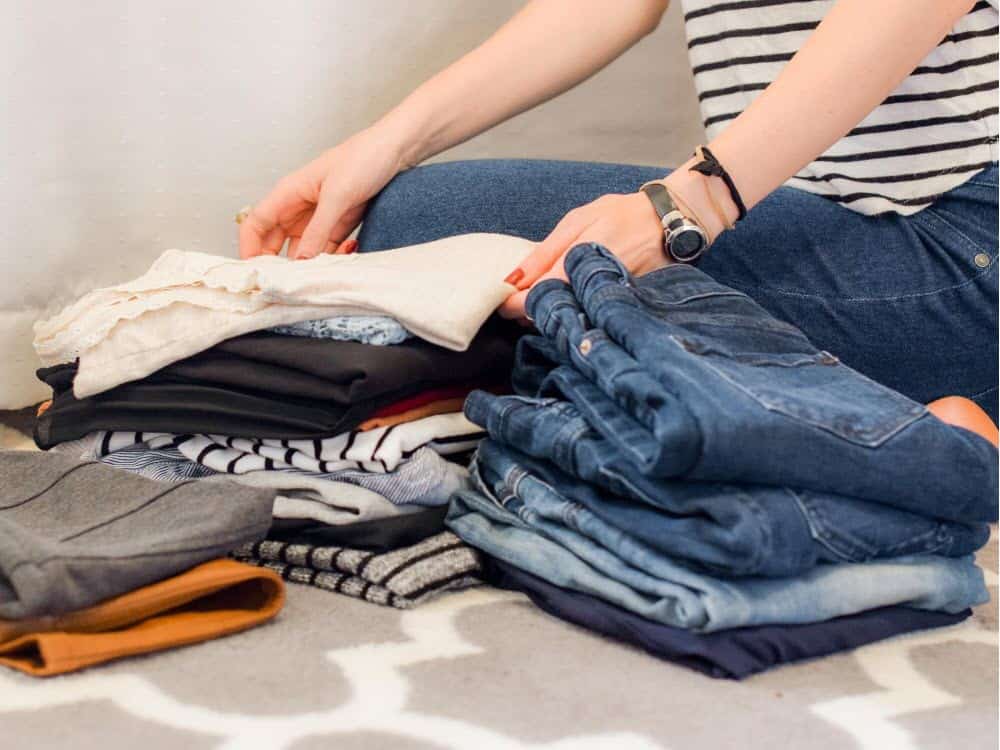
by Nick Sturgeon | Jan 7, 2020 | Declutter
The cost of moving house, both in terms of paying for a removal company as well as the emotional cost of the effort and energy required, all of this can be high. In preparation for our most recent home move we each went through our clothes and decided what we wanted to take with us versus what we actually had in our drawers and wardrobes. We figured we needed to start somewhere with reducing the amount of ‘stuff’ we took with us. Being charged by the number of crates we moved was a motivator to reduce costs by moving with less. Why pay someone else to move the ‘junk’ and clutter you have accumulated?
One day in a very simple process I lifted out all the shirts from my wardrobe and laid them on the bed in a pile. I had two dozen shirts on hangers. Asking myself “Do I love this shirt and feel good when I wear it?” I went through them in ten minutes and let go of nine.
The fifteen shirts I hung back in the wardrobe are all smart, gorgeous or look great. In my chest of drawers I repeated the process and lifted out all twenty tee shirts, putting them on the bed so I could clearly see and touch each one. I repeated the process with a similar “Do I love this tee shirt and feel good when I wear it?” How many did I keep? Ten to keep and ten to bag for the charity shop.
In one hour I had removed the following clothes:
- Nine long sleeved shirts.
- Ten tee shirts.
- Three pairs of shorts.
- Three winter coats.
- Twenty seven neck ties.
- Three bed or sofa throws.
A total of fifty five items from one hour of focus. If I had looked through the items and thought to myself “Do I like this shirt?” or “Is this coat nice?” I may not have let any of them go. By putting a specific “Do I feel good when I wear it?” on the item I was making a much clearer, emotionally based decision. Four large bin bags went with me to the charity shop the next day and it felt great to hand them over and to understand that these clothes and the blankets could have a second life, being useful, good or comforting for another person. But when I stepped out of the goodwill store I felt amazing, I felt lighter in my own self.
This is what the ‘lighter life’ is all about, being in the place within yourself where you are letting go of the emotional baggage that comes with all the ’stuff’ that holds us back. Letting go of the physical so often brings with it a lifting of the emotional or sensed weight upon our shoulders. Much of the time we don’t even know this heaviness is there, but at the moment of letting something leave our space or our ownership, we then feel the lifting of the burden we had not known we were carrying.
Right, time to look in those wardrobes!

by Nick Sturgeon | Jan 7, 2020 | Declutter
Any of your possessions that overwhelm you, or cause you to think daily of the mess you live with, these are a massive drain on you emotionally as well as practically, and there is no better time to put your focus on this issue than today. If you are ever frustrated by the amount of stuff and how this might be holding you back, then you know must deal with it. The basics of you not living the life you want stem from the clutter you drag around with you.
Not happy with the cost of your home environment? You have so many options to make change for the better:
- Sell off enough that you can downsize to a more affordable property, or raise funds to place into savings and investments for the longer term.
- Take on a good part time job that will pay you regular income for your time, but put all those additional earnings into investments.
- Start a side hustle for some passive income with the potential to leverage upwards.
Disappointed that you have not followed up the hobbies and activities which bring you happiness? Make space for them in your home and you will free yourself up to put the activity in your diary and make it happen. Brush the dust off that skipping rope and start to use it. Take your hobby gear out of the garage and get busy with what you love.
Fed up with your lack of social life or avoidance of good friendships? Declutter another space in your home for more good energy to replace the stagnation that has been holding you down and keeping you depressed or sad about the lack of social engagement with others. Clear a space today. It doesn’t have to be a whole room. Start with a shelf or that top drawer of underwear. Maybe go through one box that has been sitting in the cupboard below your stairs.
Living this Lighter Life is not restricted to reducing the emotional and physical weight of the items in your home, though you do need to give attention to the fact that letting go of physical things does create a sense of feeling lighter about your situation in general. It gives you as well a great sense of immediacy about your decision making abilities. Where the excess of belongings in your space is creating the actual appearance of a home that is filled or cluttered or ‘stuck’, the opposite of this is that a reduction of those belongings brings with it the real opportunity to take advantage of the better things that will make themselves available.
Get busy letting go of those things which no longer serve you, support or make you feel happy.
If you went through your wardrobe how many items could you let go of, removing them permanently from your drawers and wardrobes? How would it feel to only keep the clothes you adore and which you feel great in?
Take a walk around your living room and consider the items that you don’t truly love. A picture you can live without, some cushions or a throw rug you have not really ever liked, a family heirloom that you have out of guilt rather than love for the person it once belonged to. You can pack these things up and put them aside for a week. Any second thoughts will allow you to hang onto one or two of the items which you miss, but now you are free to take the box down to your goodwill store and donate it to a cause who will be grateful for your donation.
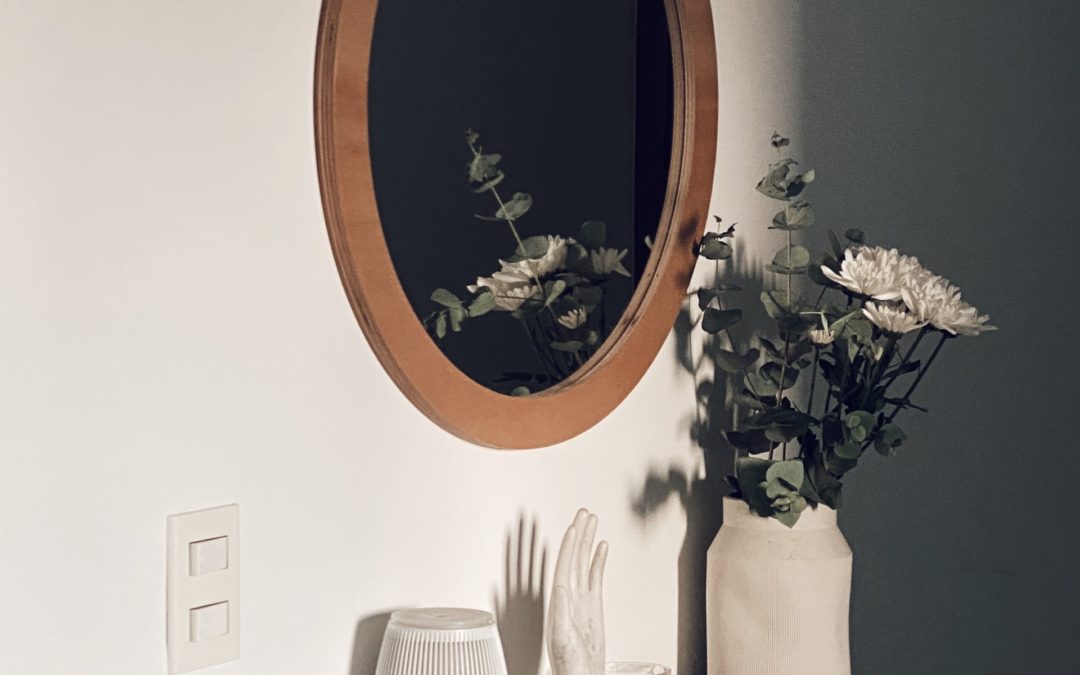
by admin | Dec 24, 2019 | Simple Self Help
When you walk a friend around your home you want them to be amazed at what you have done with the space, intrigued by how you have created special places. Make your home an investment in allowing yourself to be your best, so that whether you are home with your family or out there in the world, doing whatever you do, you do it from a place of replenishment and strength.
Create and then protect your environment so that it nurtures and supports you in being truly yourself. Do whatever is necessary in terms of decoration, ornaments, attractive features, views, artwork, etc, to make the place a special one which will lift and inspire you.
If you need candles and music to relax, then don't delay in buying them and bring them home. But only bring home the ones that give you what you need.
If you feel better writing to friends on good quality traditional stationery instead of knocking out a quick email, then visit a stationery store, select a pen that you love and develop a special place for your writing and correspondence. This is a part of who you are and reflects a way that you can express yourself. Shortcuts are most often the ones that get you lost!
Likewise if you want to have the company of friends around for a special celebration of who you are and why they are important to you, then book a date in the diary and get the invites out!
On the down side of having your home as a reflection of yourself, are there any hidden - or plainly obvious - messages around the property that stare back at you? I am thinking of the clutter, rubbish, junk and other mess that you have allowed to accumulate about the place.
Try these areas to find things that may have seen their best times:
- Your wardrobe
- Your desk
- Wherever you keep your personal financial statements
- Your garage
- The attic or loft, perhaps the cupboard under the stairs
You will find things you thought you had lost and even more things you wish you had lost! Throw away those items that have no function, don't fit, have little value, and which you might never use again. If you insist on getting something in return then take it all to a car-boot sale, place small ads in your local paper, or get yourself an account with an online auction website and get some money for it.
A client told me of how she had finally thrown away the historic credit card bills of when she had been horribly in debt and which she had held onto as a sign of the troubles she had overcome. Yet, by refusing to throw these away for years, she had actually been reinforcing the feelings of debt, owing people, and agonizing about uncertain income. Within a few short months of throwing this negative junk she began to enjoy stronger and more regular income, for the first time in years.
What is the approach to your home like for yourself and those who visit you? This is so important given that if you work outside the house, it is the last impression when you leave and the first you see when you return at the end of the day. How does your pathway welcome you? What about the windows of your home?
Does the entrance reflect clarity and order, or chaos and uncertainty?
Are the images you hang on your walls ones that lift and motivate you or do you hang onto inherited items you don't want, but were afraid to give away?
Does the first room of the house fill you with positive images or drag you down mentally?
Let go of the rubbish, the clutter and the junk and make a space for more and better things to come into your life. Life will amaze you!

by Nick Sturgeon | Nov 15, 2019 | Simple Self Help
Have you ever had your partner speaking to you and you did not hear a word because you were thinking about something, worrying about a task, or considering the work for the next day? I can't believe you if you say you haven't been there! I've been there too often. I have literally ‘read the book, seen the movie and bought the T-shirt’ on this one! We get sidetracked by something when we are supposedly doing something else.
Years ago a friend introduced me to this simple and very powerful concept and it has made such a difference. "Be IN the room" means exactly this. When you are with someone give them your focus. This is the most important thing you have for someone else at the time.
If you are working on something make it the only thing you are doing for that time.
If you are teaching your kid to ride a bicycle, then you are teaching your kid to ride a bicycle. You are not answering your mobile or composing an email in your head.
If I am writing this page for you, then I am writing this page for you.
I am not thinking about making a drink, going through my post, seeing my children, watching a film, walking into the village or paying a credit card bill. I am writing this page. Just writing this page. Nothing else.
In another moment I can choose to sit by the pool when it is warm, walk along the beach for an hour, drive the children to school or to a sports club, or make a drink and sit by the fire on a cool afternoon.
Distraction can take us away from the moment we are in. It will prevent you from being present at some of the most magical, wonderful and touching moments of life, unless you recognize it and refuse to give it power.
Get yourself present in this moment and this place where you are. By letting your mind wander to other places, other things and commitments you will lose the benefit that comes from appreciating your current circumstances and situations. If losing the focus on where you are now takes away from your current experience, then get back in the game immediately. Be IN the room. It will make one huge difference that you will notice straight away.
You will also be aware that people notice your focus and appreciate it. Be here now.
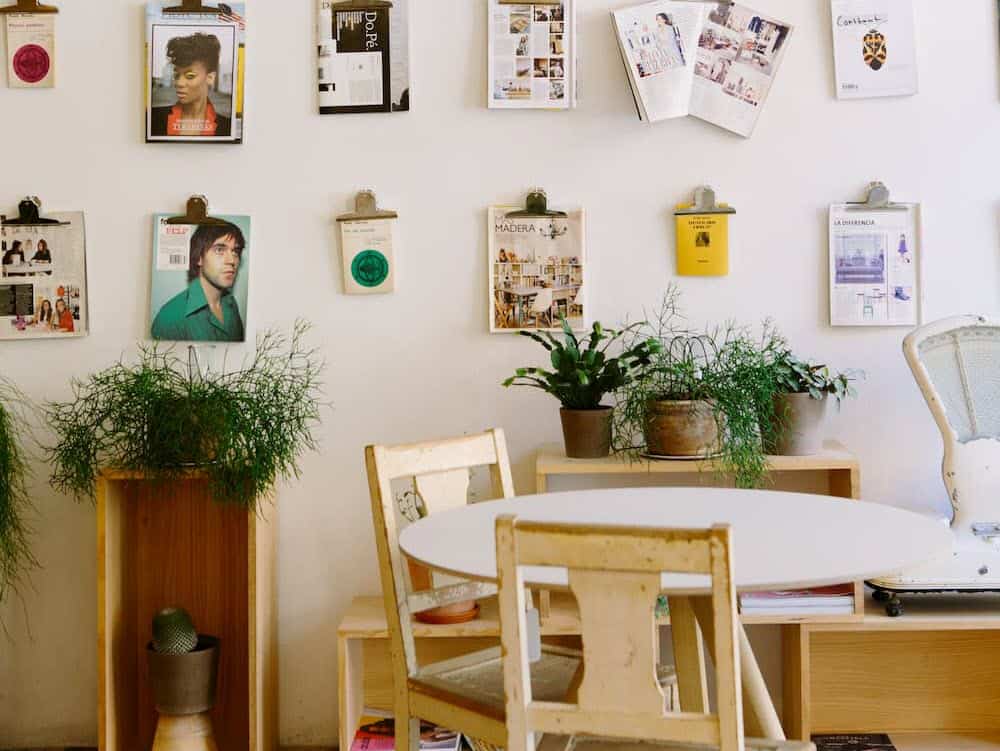
by Nick Sturgeon | Nov 15, 2019 | Simple Self Help
It is so easy to see your home as simply the place where you sleep before heading out to the world. Instead look at it with the same eyes you had when you were excited about moving in, remembering the joy you felt when you browsed through the brochure before your first walk around the place.
Whether you live in an apartment, a back to back house, a penthouse, a building that is attached to one other or to hundreds of others in the street, this is the place you are in right now. You could be in a place you love, or you may be in one that leaves you with all sorts of feelings that you need to move on to something better. What matters is that either the whole space or a particular part of it is dedicated to being special for you.
Create a special place in your living room, decorate it just the way you want, hang great pictures around the property that inspire you. Find a corner of a room that you can fill with special photos, pictures, artwork or decorations that have special and positive meaning for you.
My own study occupies what was a spare bedroom. The doors of some fitted wardrobes are covered with fabulous cards with quotes on them that inspire me and fill me with hope. Pictures of friends and other special people smile out at me from the walls. I chose the space from a few options in the house, and it was important for me that I settled for an area where I could have some privacy when I wanted it, but also enjoy great views. Those views of the countryside are there precisely because of the time and thought that we put into the selection of the house as a family home that would create feelings of security and happiness for each of us.
The last thing you want to create is a mental picture of your home as a place of burden, debt and mortgage repayment! It is so much more enjoyable and also practical to see it the source of inspiration and place to rebuild yourself before venturing out into the world. And the biggest irony of all is this, that the less you focus on the things you don't want, the more you get what works for you and pleases you!
Create the space that will nurture you and allow you to be supported to do and achieve the things you seek, and to be the person you were born to be.
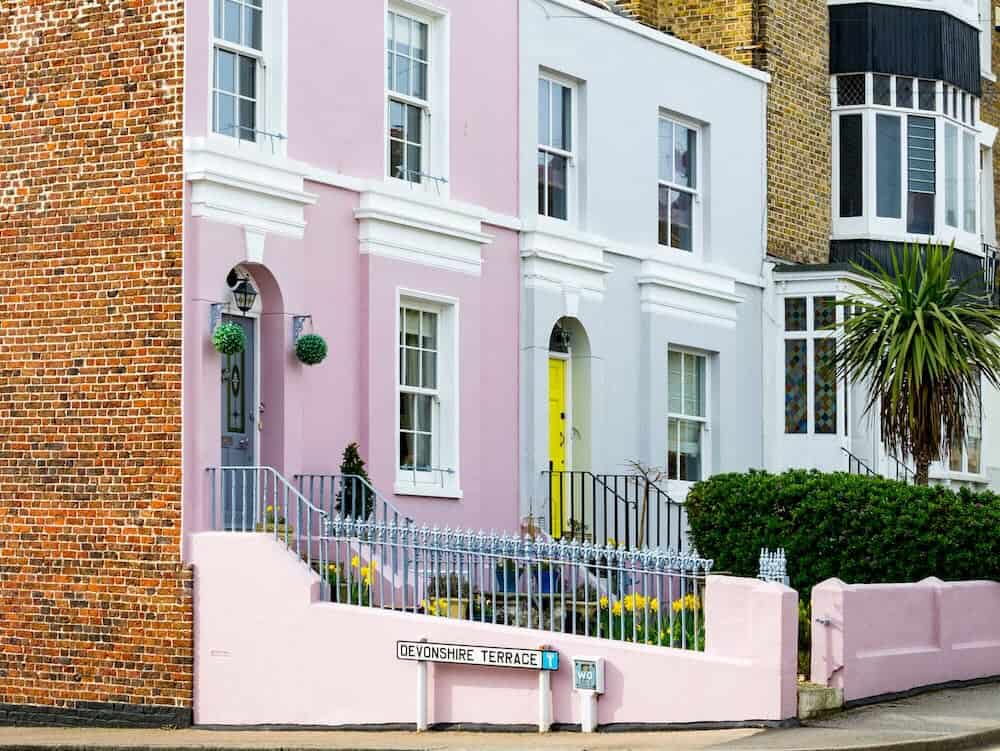
by Nick Sturgeon | Nov 15, 2019 | Simple Self Help
Years ago I often worked away from home and stayed one or more nights a week in hotels. Nothing used to make me sadder than my youngest son on the telephone saying "Are you coming home tonight Daddy?" and him not grasping the fact that I was ten hours away or even thousands of miles away. No hotel room offers real comfort, just a brief respite from the traveling and a place where you can collect your thoughts together in peace. Of course, you can be attracted to and even seduced by the hotels and the restaurants and the sense of being looked after by people who are simply doing their job when they serve you, but so what? What difference does it make to your life that you receive good service in a hotel, but you miss a child's birthday, or you don't get to attend the Parent Teachers evening, or a special anniversary is impossible to attend because of another schedule, meeting or travel requirement imposed by somewhere beyond your control.
Getting home to be greeted by the family is always a joy, even if they are unsure when you might be going away again. If in doubt, get home soon. You never get this time again with those you love.
Make a commitment to yourself to enjoy the time with those you love and then spend as much time as possible doing just that. At this stage so early in the book I am not going to suggest you make a radical change to your work or profession in order to spend more of your time in alignment with what you believe in and what your values are. But I will ask you to work out your beliefs and your values and to ask yourself if you are even close to them in your day to day activity.
Memories are made and created by the way that you live your life moment by moment so use the moments of today to build a picture you will be able to look back on with love and gratitude.
Seek out the people who seek to be with you and spend as much time as you can in their company. Each of you will always be grateful that this is what you chose to do. Your regrets will be less when you look back on these times. And by the way, these times are the only ones you have.
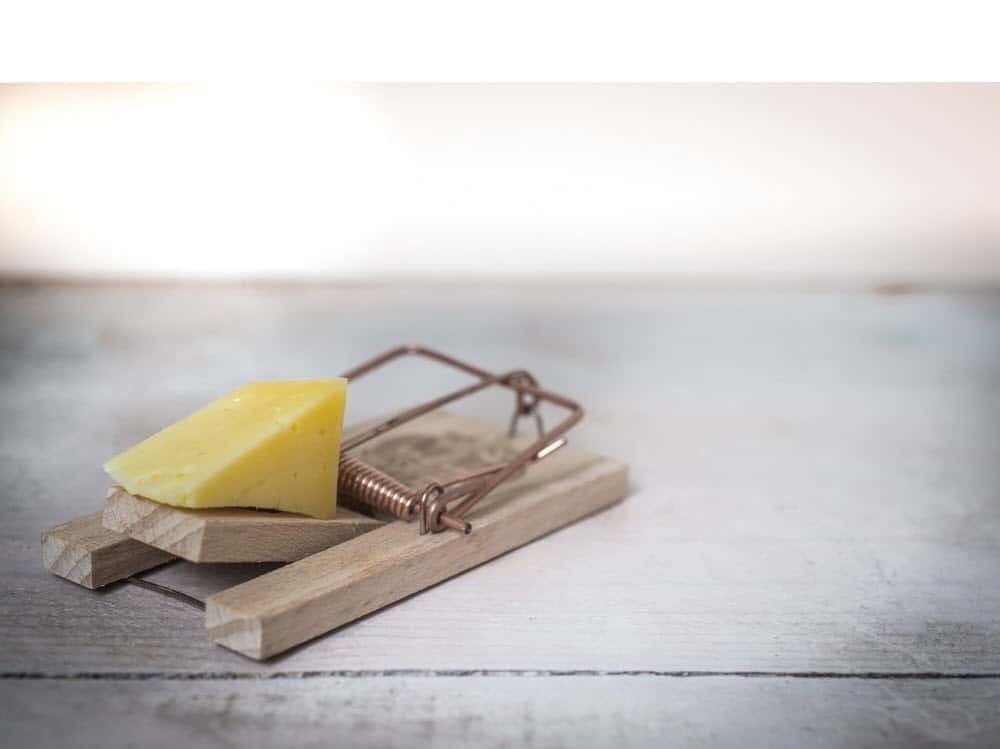
by Nick Sturgeon | Nov 7, 2019 | Declutter
At what point this past month did you think about your home and living space and wish you had less? Less clutter to hold you back, to tie you down and to hold you in one place.
Consider these very simple situations :
If the world gave you a year’s income today could you get on a flight next week and not look back to your home and possessions while you are away?
If a dear friend called you tonight and invited you to join them on the other side of the world for a three month adventure, with all your expenses paid for travel and accommodation, could you join them this weekend?
If you get into work next Monday and your employer gives you the news that your entire department is closing down, (and assuming your own finances are good and you have savings for the project) can you lock the door on your home and possessions, leaving them behind for a full month of training or education you have wanted to attend since you learned about it a year ago?
In each scenario we are assuming that the bills are taken care of, that finances are no reason for you to avoid the opportunity to enjoy yourself. If the money is not an issue and you have the confidence to take part in the adventure and you have the freedom in your calendar, why are you not doing these things?
Most households - and you might be one of them - are trapped by the burden of not being in control of their possessions. You cannot lock the door on your practical ownership of clutter and junk to take off and enjoy yourself. You couldn’t rent out your home for a longer trip, because the chaos is everywhere and way too much for a guest to live with. You can’t invite guests to stay for even a weekend due to the level of mess. You cannot relax on a long holiday for fear of the clutter that needs your mental attention (even if you rarely do anything to practically deal with it). In any of these scenarios your clutter is in control of you as opposed to you being in charge of your living space and possessions.
The freedom to be you or to live this lighter life, is about having only those belongings and possessions in your home space that you need to be happy and settled. I am not referring to minimalism here, but to being aware of what you have and how to find it when you need it. The freedom to be yourself is immensely valuable. It is very much at odds with any sense of being trapped or held back by the volume of stuff which invades your private space and potentially or actually hinders your decision to think, act and choose freely about what you can do.
Consider what you can do to create more flexibility and give yourself access to this Lighter Life. Make it easy by focussing on what you want to do, how you wish to see and bring about change. Create some image boards of the lifestyle you can access when you remove the trap of the clutter. Minimise the amount of junk in your house. Let go of the things you no longer need or stopped using a long time ago. This is your opportunity to bring about change that can improve your life.
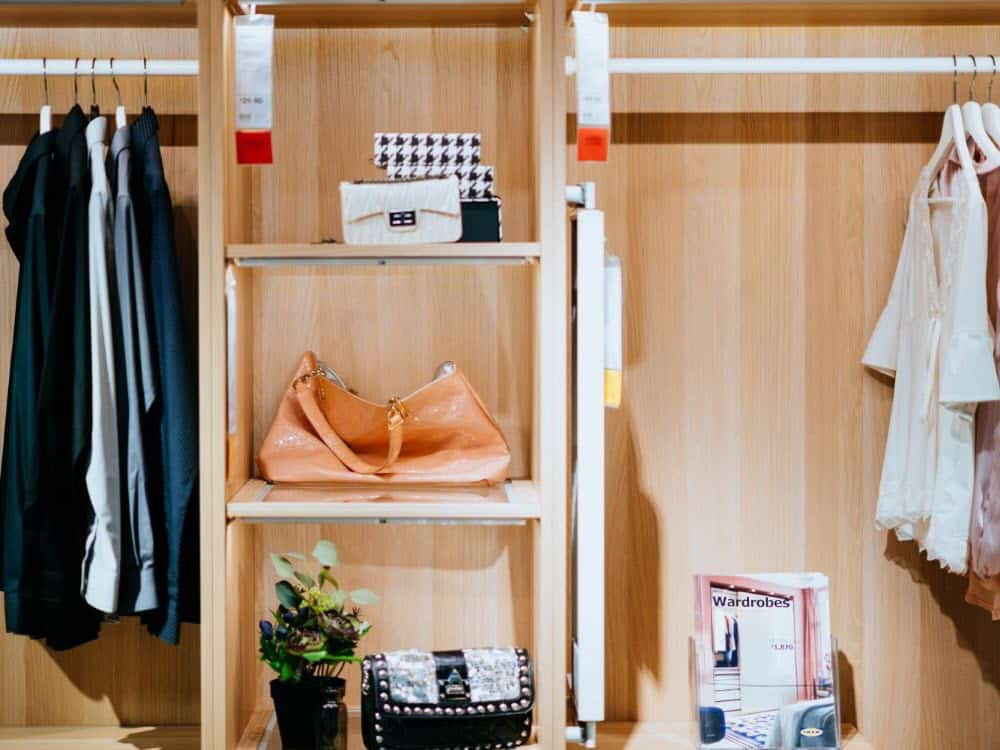
by Nick Sturgeon | Nov 7, 2019 | Declutter
If you have become a clutter junky over time, then this journey is going to require you to be brave as we move along a path towards a home with less burden and more joy, to a place where you know what you have and where it is. If you simply have more stuff than you need to live a happy and fulfilling life, and cupboards and wardrobes bulging with stuff you neither use nor wear, then you will enjoy the practical satisfaction and emotional relief that comes with the letting go of the unwanted, the unneeded and the undesirable ’stuff’ that is clogging the arteries of your living space.
Imagine the pleasure of coming home to a place where everything has its place and you know precisely where that place is. How much time do you lose in the course of just a week looking for things that are no longer where you imagined them to be and in struggling to consider how you might find them? Imagine also what might happen if, within your accumulated record of your life history, you find and reconnect with items that are in good order and have a value to someone else, that can be sold via online sites and where you can receive the financial value of such things with relative ease.
Always a book collector or addict, I have struggled to leave a bookshop without buying something that looked great, but which I might not get around to reading. So the day I came home from bookshop, having browsed a title dealing with creating a tidy home, and without a new book in my hands was a real turning point for me.
I came through the front door and said “We have to do something. I realise the level of my hoarding and am really embarrassed about it.” I was genuinely distressed at how out of control my book addiction had become and had fixated on this thought since driving back from the book store. My partner is kind and caring and understood. She simply said “I’ve been waiting for you to realise this, my love”, and gave me the biggest and most understanding hug. In that simple moment was born the start of our plan to declutter and live a lighter life, one without the burden of the clutter and the chaos it brings.
What is it that you collect, gather around you as if it is going out of fashion or as if it will never be available again? Is there a theme or trend to what you bring home and hoard? By identifying and understanding these patterns of hoarding and gathering clutter, you are half way to recovery. Knowing what is getting in your way is what you have to discover for yourself in order to become free of the clutter bug.
Be kind to yourself as you work through the ideas behind your gathering junk, building a collection, creating a bunch of ‘treasure’ - at least in your eyes - and make some steps to break the addiction.
You can do this, but just take it one day at a time.
Why do we gather clutter?
The reasons are many and often complicated and the exploration of these is going to open up that proverbial ‘can of worms’ as we work through these together. The power of emotions has the greatest hold on us as we delve into this topic and some of the reasons will astound you. At the very least you will be surprised by some of the learning you make in the process. Ask yourself :
“Why do I have Grandpa Tom’s hand built coffee table in my life?”
“Does the clock on the wall that was on a mantelpiece in my long-dead Aunty’s house need to have a place in my own living room, some twenty years after she passed?”
“Does the team football photograph that showed my Dad as a young man about to leave school seventy years ago need to be on the wall in my hallway?”
“Just because I was given a hand painted teapot and matching cups and saucers by my best man and his wife when we first married twenty five years ago - and divorced after twelve years - should I still have this on the shelf in my kitchen? Especially when I have not used it in the two years since we took it out of the box it was found in?”
These are random questions that I use from my own example of clutter and accumulated items in the challenge that we set ourselves at home. I am sure you can easily find your own relevant examples of things around you.
Here are a couple of simple questions for you today, intended purely to help you find your place in all of this.
Do you consider that you have all your possessions under control?
When you see the clutter in your house, whether on display in the common areas and daily used rooms of your home, or stuffed awkwardly into the lesser observed areas of cupboards, attics, basements or boxes in the garage, how does that make you feel?
Enough said! Your clutter is personal to you and your lifestyle as well as to your attitude and approach to life. Millions of other people live with everything they own under one roof and they experience no guilt or upset. But this exploration of letting go is not about them. I have confessed my own situation and how I felt that so many material things were draining my energy and time. The things we bring into our home space should be there because they make tasks easier or to bring us happiness. Where our possessions become so many that they are more than we can manage and they start to distract us from living the life we should be enjoying, this is where the trouble begins and the stress begins to wear us down. We work longer hours and spend more of our disposable income just to keep the possessions under control by such things as storage, insurance and taking on bigger and more costly spaces to live in.
Quite naturally, we need to place much of our focus on our home, on our living space and the things within it. But a full approach to letting go requires that we don’t just limit ourselves only to mess and chaos, to clutter and junk as they appear in your physical world. We will also explore the damage that comes from being connected with toxic people, the distraction of digital clutter and the overwhelm that can come from addiction to gathering more around you than you need.
To answer the question of “Why do we gather clutter?” we do this because we are human. We do it because we feel we need to collect things around us so that we can make statements such as these :
“I am safe now”.
“They are not making this quality any more, so let’s get one now”.
“I can provide for my family”.
“I deserve to have this because I have gone through so much”.
“Do you know how much I had to work this month?”
“This was a bargain, so I had to get it”.
“We’ve been struggling recently so I figured we deserved this”.
Being human gives us a sense that we have to carve out our own identity in a world that is so often homogenised, identical, similar brand - different perspective, must-have, latest trend, special item, but really very much the same. We think that by surrounding ourselves with the things which reflect who we believe ourselves to be in the world, we will then create a space which feels unique to us. And when you first do this, starting to accumulate the things around you which make you feel good, it does seem like you are achieving the goal of originality. But at what cost, or better said, at what price?
What price have you paid to fill your home with the things that you have purchased in order to bring home and use to say “This coat is me” or “These books and this desk are me” or “This car is me”. Some of that is your own voice and heart talking. However, there will be a proportion of ‘stuff’ in your dwelling space which has got in there, easily or by pushing it’s way in, because of advertising, because of the cultural influence of your neighbourhood or peer group, of social media and what is or is not ‘on-trend’ this week. Letting go of this stuff will emotionally and physically open up space in your home. While it can seem like a push to make the decision to look at each thing we have and bag or box it for discarding or donating, the value of doing so is beyond measure.
As we go on this declutter journey together, there will be opportunities to work through various exercises and activities. All voluntary of course. One very probable realisation is likely to be that your early dreams and aspirations for what home should look like, but also feel like, will make themselves very clear to you. Some of these will have been completely forgotten over previous years, others will whisper gently and kindly to you and ask to be let back into your living space to reflect all those good aspects of you, your character and your values. Welcome them when you see them, as you surely will when you reduce the distraction that has been overwhelming your personal space.
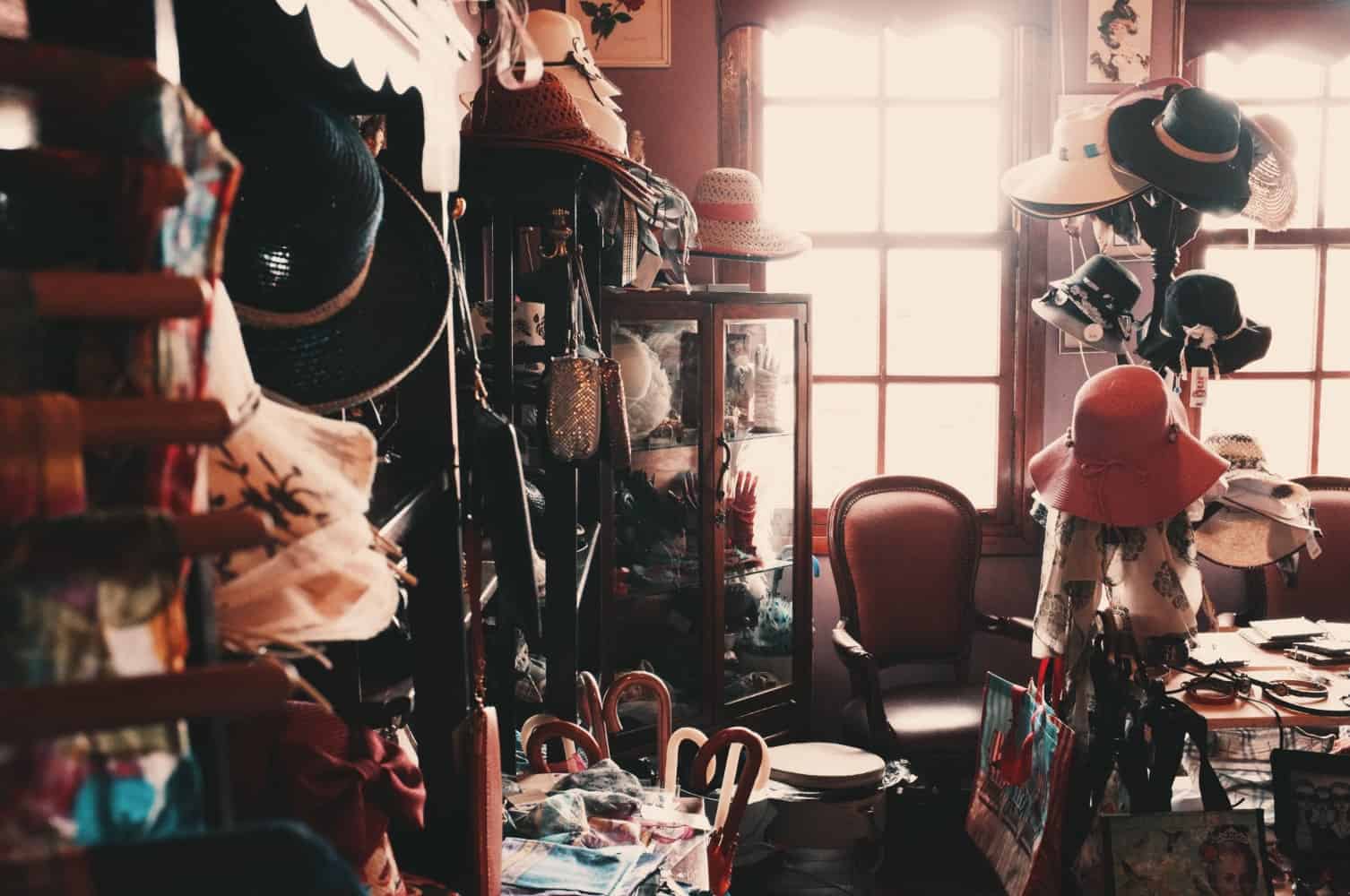
by Nick Sturgeon | Nov 7, 2019 | Declutter
The truth about a difficult situation can be a useful reminder that you need to make some changes. I once had ninety six boxes of clutter in my home. They occupied an entire room in our three bedroom house. I had allowed a third of our house to be utilised by packed and boxed clutter. On a building that cost us £1,200 per month the maths are easy to do. This figure is the cost of living in the building, and also includes insurance, utilities as well as decoration. That’s £400 per month of our outgoings spent each month on the storage value of my boxes, most of these containing books.
£4,800 a year over five years minimum or £24,000 that I have shelled out as a part of overall accommodation costs just to store several thousand books that I have not looked at or made any use of in that time. Boy, did this realisation make me feel stupid! It also caused me to feel sadness that I had not handled the situation well.
In your own place what have you got that takes up the equivalent of at least a full room in your house? Think about the value of the items that you have in that combined space where, if you were to box all the ‘stuff’ and stack those boxes, you would end up with a room filled from floor to ceiling. Take that room as a proportion of your property and identify the monthly cost of that building or space. It doesn’t really matter whether you rent or pay a mortgage. The cost you have is the cost. If the clutter is taking up 10% of your monthly accommodation budget then take that figure as you Cost of Clutter. If it is 20% then it is 20% of your expenditure. This fact should be enough to make you sit up and take notice all of a sudden.
I know you might say, “But Nick, don’t be hard on me! This is only filling the basement or a garage unit attached to the house.” Am I sympathetic to you? NO! Not at all. Am I empathetic to your situation? Yes, for sure I am. Having been through the process myself I am gong to explain this in a very straight forward way. I care enough to help you make the difference in your life that we finally had the courage to tackle in our own situation.
Whatever the cost, take a moment to see that same amount of money in your savings account and being available to you for fun activities, holidays, investment, travel and holidays. Those funds could be used to pay down or settle in full loans that you have and which you would like to be free and clear of. Consider the emotional relief that will come from taking such money and clearing those debts. You could buy possessions that you genuinely love and adore, and which might have an investment value as well as being functional and or beautiful in your living space. Items that you would benefit from seeing and using every day.
This will not be easy, but the journey you can make is a simple one. Explore the items in your house that bring you no benefit or which have fulfilled the function for which you originally bought them. This usage or non usage relates only to some of the clutter in your life. A lot more of it will be having an emotional cost to you. In the same way that I had in the back of my mind the subconscious sense of the emotional weight of those boxes of books, files and papers, so too will you also be carrying a burden associated with the stuff you are carrying about in your home space.
Reduce your clutter and enhance your life in the process!
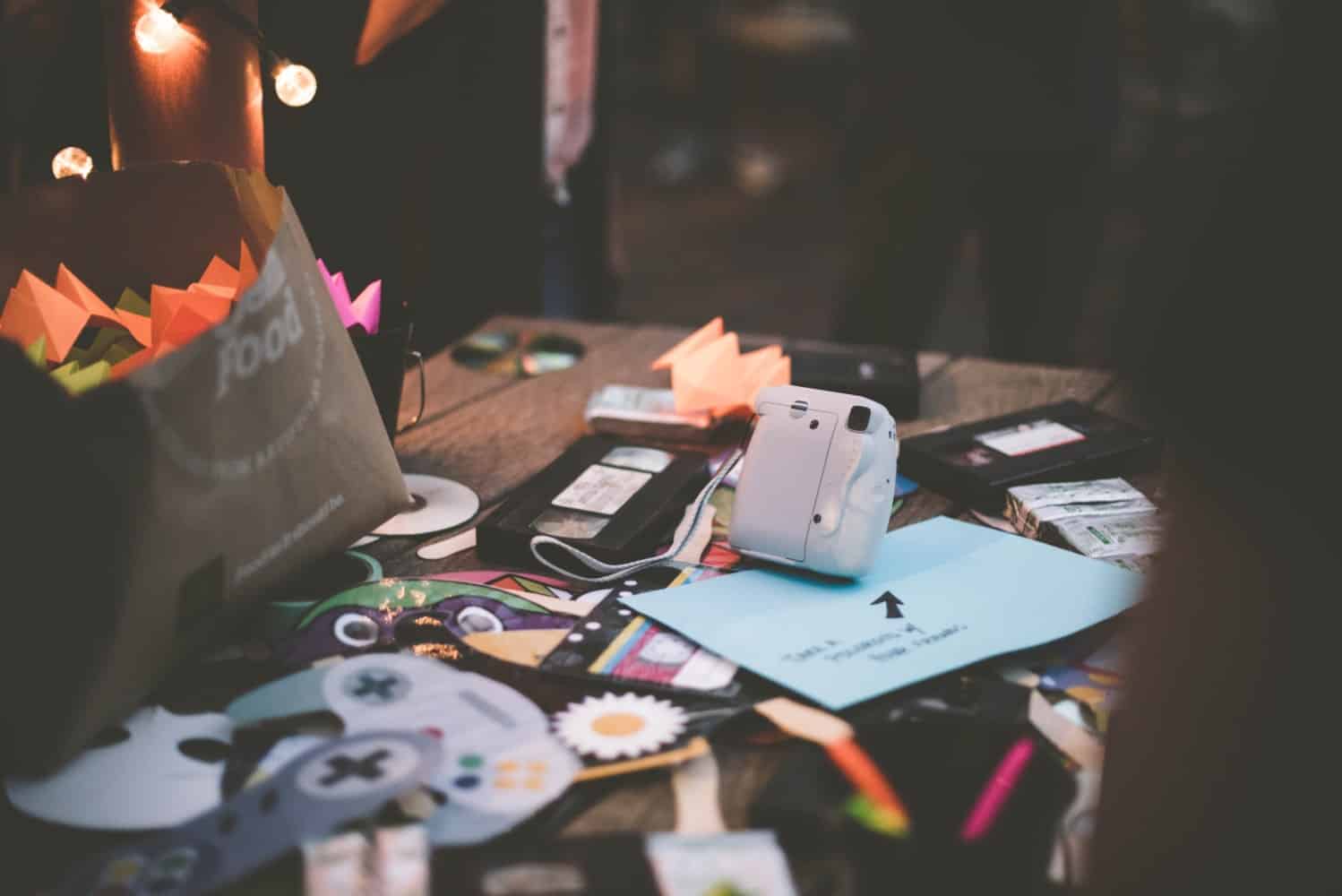
by Nick Sturgeon | Nov 7, 2019 | Declutter
My favourite bookshop occupies one long floor of a beautifully converted weaving mill, next to a canal, a river and a country park. I was browsing the shelves one weekend and my attention was caught by a beautiful clean copy of a title about decluttering. I sat on a reading bench with the book and began to go through it. The chapter titles drew me in to how I might better deal with my clothes by folding them in a special way, methods to calculate what represented the right number of shoes to keep, and questions around the levels of joy that an item brought to me. The book cover was white and very subtly projected the attractive image of a potentially clean and clutter free living environment. This promise was so good
Crossing the exposed wood floor of the gorgeous bookshop and on my way to the counter, I found myself having an epiphany. “What the hell was I doing buying a book about dealing with clutter, if only to take the book home and add yet more weight to an existing bookshelf?”
My major clutter devil is addiction to books. For years I have bought books almost as soon as I have touched them. At the time I was about to buy that book at the till I already had around 2,500 books. If there were such a civil category I would be classified as an official hoarder with serious kleptomaniac tendencies!
To let go of anything requires a decision. To let go of our generic ‘stuff’ can be a difficult process for many of us given that the size of the task can be daunting. Somewhere in our head we know that we have too much. Too many food processing gizmos, too many magazines on home style, too many items of underwear, or winter coats, or gardening tools, or drinking glasses, or walking sticks, or reading glasses, or knives and forks. You get the idea because you know your own living space so very well. We watch TV shows about people living in tiny homes, or practicing a minimalist lifestyle which seems to require a yurt or a container home and we are put off.
Too be honest, the more I see the really good container homes online the more inspired I am by what can be done to shed the non-essentials and live better with less. So we know we can do better than this, but why do we continue to hold onto so much. We understand that there is a link between the mass of ‘stuff’ and the emotional sense of feeling weighed down by it all. Yet still we buy and accumulate. If it was a logical process to make space for a new thing by clearing out the old before we go shopping, then our lives would be easy, our homes spaces clutter free. It is not this way and so we must adapt and change our behaviour to meet the problem we have created for ourselves.
We attach feeling and meaning, nostalgia and memory to each item that stays on our shelves, in our cupboards and which hangs on our walls or has a special place on our window ledges. Many of the feelings and thoughts which we pin to the objects are deep rooted and we are unaware of the pull we have to the item. With another item we might have a clear memory of the occasion when it was given to us and by whom. That memory can be good, bad, or downright unpleasant. Why are you hanging on to something which has anything other than a good sensation or memory attached to it?
You need to look at the benefits of decluttering and letting go, versus the negatives of hanging on to so much that you know is already draining you, making you feel heavy or even guilty around some things and simply unhappy about others. Keeping things that bring you no practical or emotional benefit can be a waste of your time, energy and a drain on your well-being. Whether we are considering a broken electrical item in your basement, or chipped and cracked crockery in your kitchen, the items are no good for you.
These things each carry a stagnant energy which is not part of who you are now. The act of holding onto such things can pull you down and hold you back. Rather than hold onto so much that gives you no actual benefit, it’s time to let it go out of your life. Through the act of letting go you are creating a positive space into which something new, or beneficial, can come. Start with something easy.
What can you remove from your home today?









